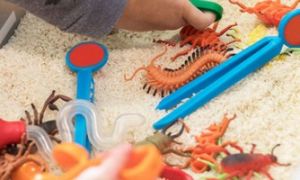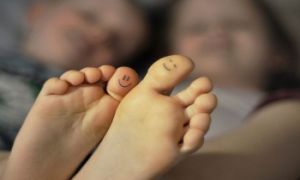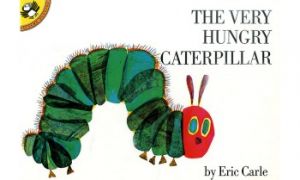The Developmental Milestones Checklist EYLF 2 to 3 Years enables Educators to link each of the milestones within the developmental domains to the EYLF Outcomes.


Experts on early childhood education have for some time believed that much more than the content of learning – like numeracy, literacy and science concepts – it is the acquiring of learning dispositions that ensure the best academic outcomes in the long run. The following article provides information on What Are Learning Dispositions, How Dispositions Change over Time and Context, Examples Of Learning Dispositions and more.
This template is to be used to detail the child's progress over the course of the year. It's great to share with families to let them know specifically how their child developed and the new skills they learnt. It can also be used as a Transition Statement for the child to be shared with the school teacher.
The EYLF explains assessment for children’s learning as the process of gathering and analysing information as evidence about what children know, can do and understand. It is a key part of an ongoing cycle that includes planning, documenting and evaluating children’s learning. And one of the most effective forms of such documentation is the learning story. The following article provides information on What Is A Learning Story, the Components Of A Learning Story, Writing A Learning Story, What To Include In A Learning Story and more.
The Developmental Milestones Checklist EYLF 4 to 8 Months enables Educators to link each of the milestones within the developmental domains to the EYLF Outcomes.
The Developmental Milestones Checklist EYLF 8 to 12 Months enables Educators to link each of the milestones within the developmental domains to the EYLF Outcomes.
The Developmental Milestones Checklist EYLF 3 to 5 Years enables Educators to link each of the milestones within the developmental domains to the EYLF Outcomes.
The Developmental Milestones Checklist EYLF 2 to 3 Years enables Educators to link each of the milestones within the developmental domains to the EYLF Outcomes.
The Developmental Milestones Checklist EYLF 1 to 2 Years enables Educators to link each of the milestones within the developmental domains to the EYLF Outcomes.
Critical reflection has been explained in the EYLF as reflective practices that focus on implications for equity and social justice. In the context of childcare, it involves examining and analysing events, experiences and practices from a range of perspectives to inform future planning and decision-making. The following article provides information on Engaging In Critical Reflections, Questions For Critical Reflections, Practicing Critical Reflections and more.
Experiences in early childhood settings build on the range of experiences with language, literacy and numeracy that children have within their families and communities. The following article provides activities to promote each of the sub-outcomes of EYLF Outcome 5 - Children Are Effective Communicators.
 Here is the list of the EYLF Learning Outcomes that you can use as a guide or reference for your documentation and planning. The EYLF… Read More
Here is the list of the EYLF Learning Outcomes that you can use as a guide or reference for your documentation and planning. The EYLF… Read More
 The EYLF is a guide which consists of Principles, Practices and 5 main Learning Outcomes along with each of their sub outcomes, based on identity,… Read More
The EYLF is a guide which consists of Principles, Practices and 5 main Learning Outcomes along with each of their sub outcomes, based on identity,… Read More
 This is a guide on How to Write a Learning Story. It provides information on What Is A Learning Story, Writing A Learning Story, Sample… Read More
This is a guide on How to Write a Learning Story. It provides information on What Is A Learning Story, Writing A Learning Story, Sample… Read More
 One of the most important types of documentation methods that educators needs to be familiar with are “observations”. Observations are crucial for all early childhood… Read More
One of the most important types of documentation methods that educators needs to be familiar with are “observations”. Observations are crucial for all early childhood… Read More
 To support children achieve learning outcomes from the EYLF Framework, the following list gives educators examples of how to promote children's learning in each individual… Read More
To support children achieve learning outcomes from the EYLF Framework, the following list gives educators examples of how to promote children's learning in each individual… Read More
 Reflective practice is learning from everyday situations and issues and concerns that arise which form part of our daily routine while working in an early… Read More
Reflective practice is learning from everyday situations and issues and concerns that arise which form part of our daily routine while working in an early… Read More
 Within Australia, Programming and Planning is reflected and supported by the Early Years Learning Framework. Educators within early childhood settings, use the EYLF to guide… Read More
Within Australia, Programming and Planning is reflected and supported by the Early Years Learning Framework. Educators within early childhood settings, use the EYLF to guide… Read More
 When observing children, it's important that we use a range of different observation methods from running records, learning stories to photographs and work samples. Using… Read More
When observing children, it's important that we use a range of different observation methods from running records, learning stories to photographs and work samples. Using… Read More
 This is a guide for educators on what to observe under each sub learning outcome from the EYLF Framework, when a child is engaged in… Read More
This is a guide for educators on what to observe under each sub learning outcome from the EYLF Framework, when a child is engaged in… Read More
 The Early Years Learning Framework describes the curriculum as “all the interactions, experiences, activities, routines and events, planned and unplanned, that occur in an environment… Read More
The Early Years Learning Framework describes the curriculum as “all the interactions, experiences, activities, routines and events, planned and unplanned, that occur in an environment… Read More

Early childhood is a busy time – there are so many new objects to look...
See more...
A child being barefoot can stimulate a variety of senses for children. The feeling of cool...
See more...
The Very Hungry Caterpillar is a free story for Educators to download and read to...
See more...© 2009-2025 Aussie Childcare Network Pty Ltd. All Rights Reserved.
